Celebrate Black Music Month: Savannah has produced musical talent through the decades
- Oops!Something went wrong.Please try again later.
- Oops!Something went wrong.Please try again later.
- Oops!Something went wrong.Please try again later.
- Oops!Something went wrong.Please try again later.
- Oops!Something went wrong.Please try again later.
This is an opinion column by arts and culture columnist Maxine L. Bryant.
Ella Fitzgerald. Louis Armstrong. Nina Simone. Dizzy Gillespie. Ma Rainey. Prince. Tina Turner. Jimi Hendrix. Alicia Keys. Otis Redding. Whitney Houston. Marvin Gaye.
That is a very short list of talented Black singers who have shaped the music world. For centuries Black people have made significant contributions to the world of music since first being brought to the Americas. So much so that in 1979 then President Jimmy Carter initiated June as Black Music Appreciation Month. This month has been set aside to celebrate African American’s musical contributions to the U.S. and beyond.
Drumming, singing and dancing have been an integral part of Black culture since before slavery. Traders of enslaved Africans and plantation owners made effort to divide captured Africans from others who spoke the same language to reduce the likelihood of them successfully planning an escape or revolt. However, Africans created ways to communicate through drumming, singing and creating a language of their own that became known as Gullah in the Georgia and South Carolina lowcountry.
More: 'I share this cry with you.' Memorial marks Tybee's role in the Middle Passage slave trade
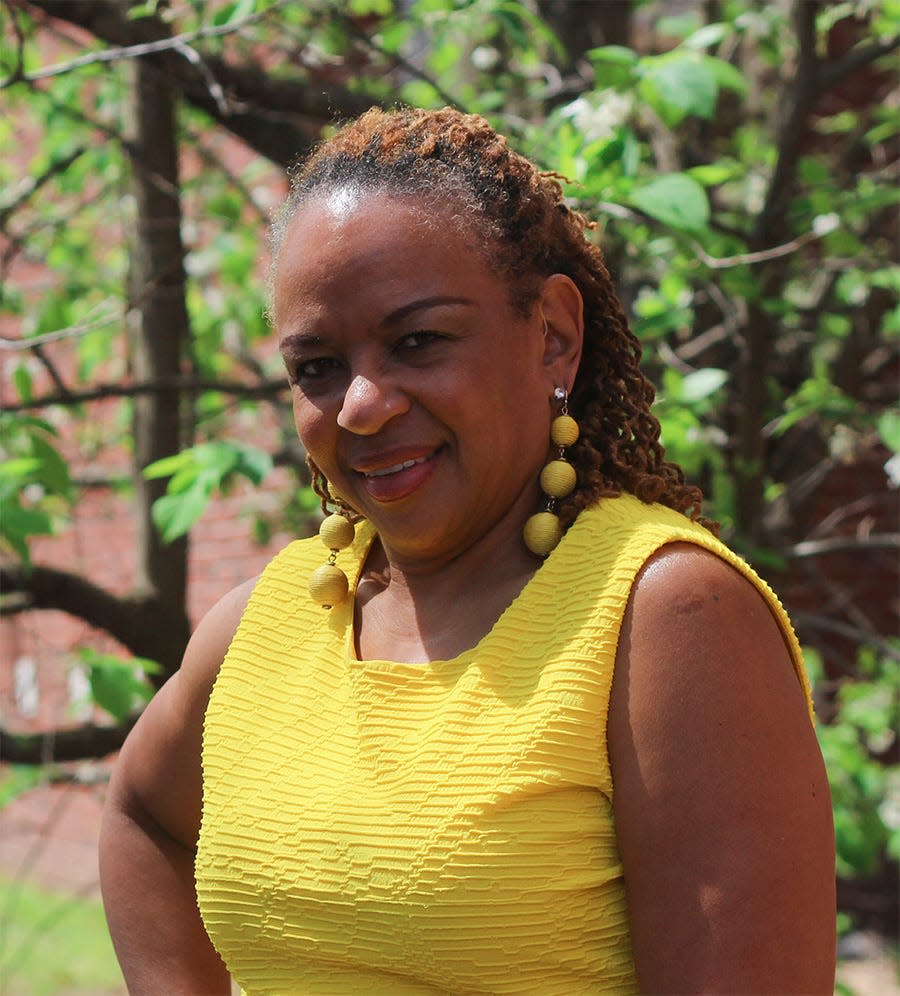
Message in the music
There’s always been a message in the music of Black people. In his opening remarks at the 2009 United Nations International Day of Remembrance of the Victims of Slavery and the Transatlantic Slave Trade in New York, then United Nations Secretary-General Ban Ki-moon remarked that “the drums symbolized the freedom [Africans] had lost and their struggle to regain it…Drums have provided a way for people of African descent to share their culture with each other and the world."
And, indeed the beat of the drum has provided a pulse for many cultures across the world as people throughout the African Diaspora have utilized rhythmic beats to warn, to mourn, to celebrate, to call to action, to…. communicate with each other and the world. Then, they took the drums away.
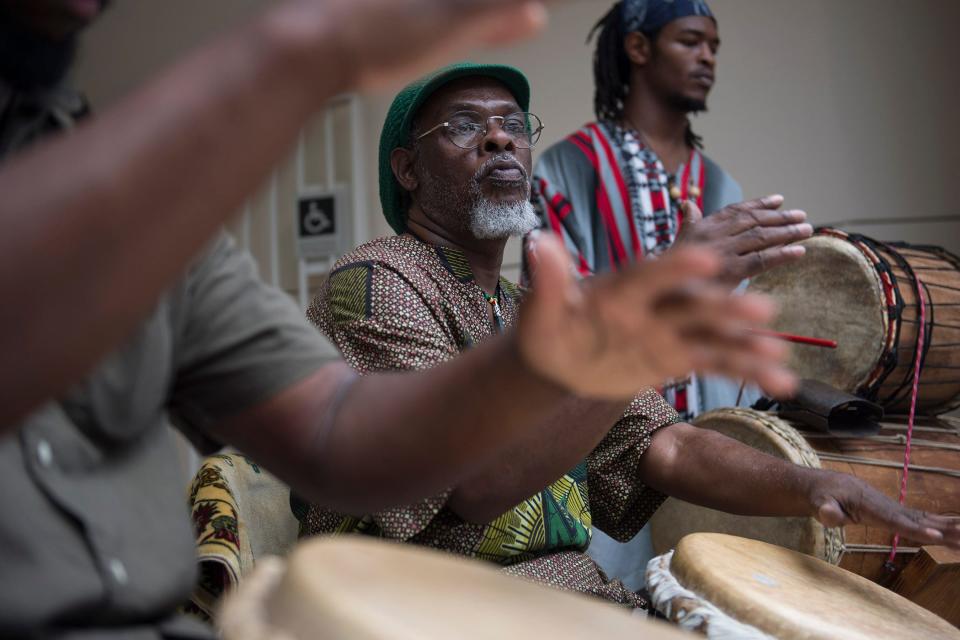
After the 1739 Stono Rebellion in South Carolina, it was against the law for enslaved Blacks to drum because of their use in coded communication. Not to be deterred, Blacks transferred the rhythmic power of beat and melody to voice and body.
Thus, enslaved Africans used songs to communicate with each other. These songs became known as Negro spirituals and include such classics as "Wade in the Water" which is believed to have been sung by Harriet Tubman to warn people escaping from slavery to get in the water to hide their scent from the dogs used by slavers to find them. The song "Swing Low, Sweet Chariot" included words that informed escaped enslaved Blacks of Underground Railroad conductors who were on the trail to guide them to freedom.
After Emancipation, music continued to be a freeing mechanism in Black culture — allowing Black Americans to express their thoughts about community, relationships, resistance, the state of the times and more. It is said that Black music actually “altered the social, political and economic structures of American society." From blues to gospel to jazz to R&B to hip hop/rap, Blacks have influenced the music we listen to. Many of them have a connection with Savannah. Today’s column highlights and honors a few of them.
More: Lowcountry Blacks have resisted oppression since the first enslaved Africans arrived
Savannah musical greats are many
Composer, vocalist, and pianist Sidney Easton (1885-1971) was born in Savannah and performed in minstrel shows, carnivals, burlesques, and on stage. Some of his credits include the music and lyrics for "Go Back Where You Stayed Last Night" for the Broadway play "At Home With Ethel Waters" and the music and lyrics for "After Midnight."
African Americans invented jazz and Savannah-born James Moody (1925-2010) has been counted among the best. Moody played the tenor and alto saxophones as well as the flute. This is amazing because he was born partially deaf. Known as one of the champions of Dizzy Gillespie’s music, Moody was a talented musician known for his charm and wit.
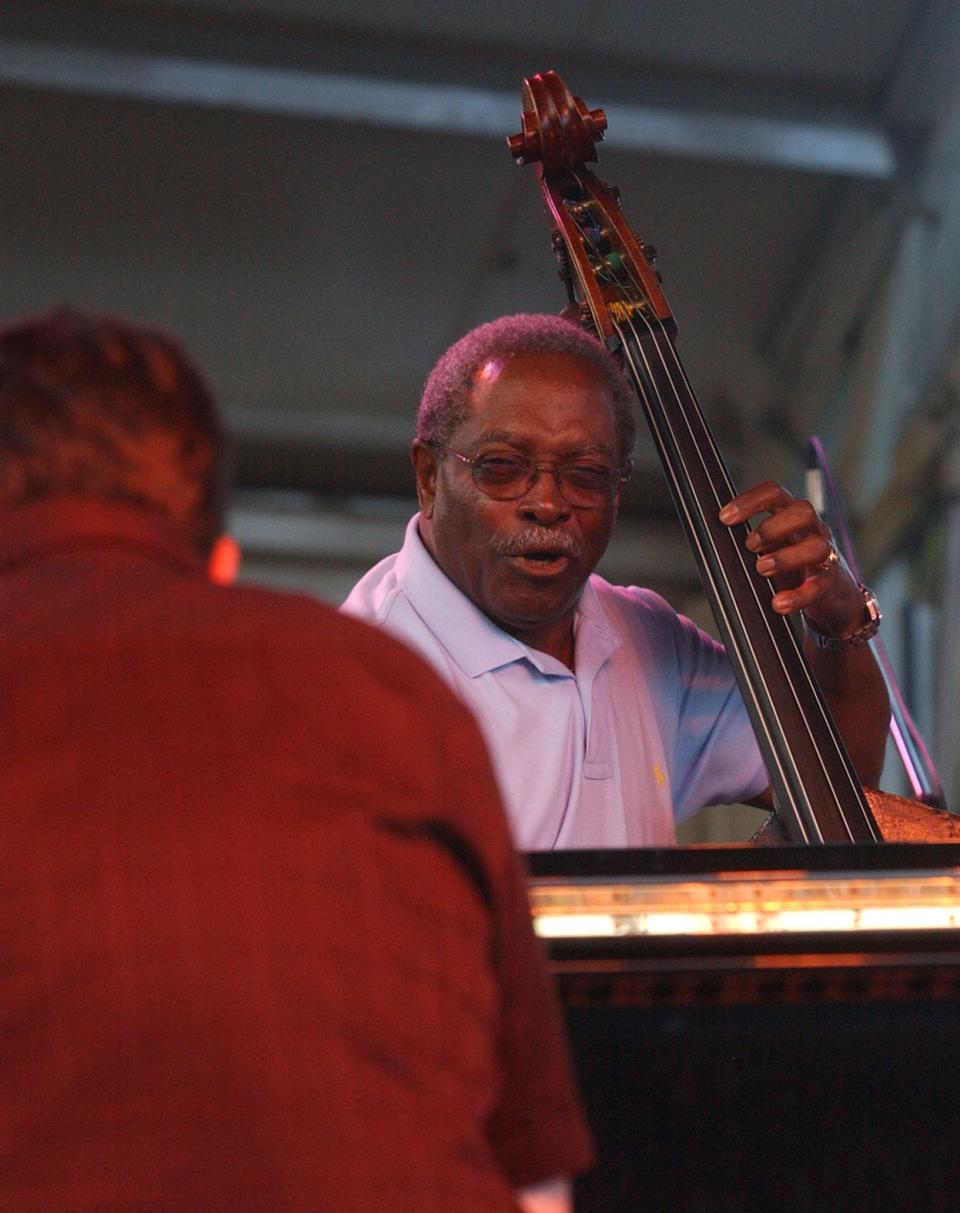
A well-known local legend in the world of jazz is Ben Tucker (1930-2013). Tucker was born in 1930 in Nashville and was making his mark in the music world before moving to Savannah in 1972. An extremely talented jazz musician and composer, Tucker was named one of the world’s top ten bass players by Metronome magazine in 1959. He was a bass player in the Dave Bailey Quintet in 1961 and that same year recorded the song "Coming Home Baby" which was a hit for Herbie Man and Mel Torme.
This abbreviated list must include Danny “Big Black” Rey who specialized in what has been called ethnic jazz. Born in Savannah in 1934, Rey developed quite a reputation as a musician and has played with jazz greats such as Gillespie and Freddie Hubbard. In 1966 he played with Randy Weston’s band at the Monterey Jazz Festival and recorded songs with Charles Tolliver and Pharoah Sanders in 1975.
Women with Savannah connection have made their marks in the music world also. Although India Arie was born in Denver, she studied jewelry making at Savannah College of Art and Design (SCAD). Since her debut album, "Acoustic Soul", was released in 2001, Arie has sold over 5 million records in the U.S. and 10 million worldwide. Additionally, she’s won four Grammy Awards. This young lady can definitely be counted among Black musicians with Savannah connections who have made a mark in the music industry.
More: Savannah is filled with Black women of history: Here are six local 'she-ros' to know
Joining the spotlight of Black female vocalist is Nivea, a Savannah-born R&B singer who rocked the Billboard charts during the early 2000s. One of her best-known hits was nominated for a Grammy – “Don’t Mess with My Man’.
Antwan Andre’ Patton, better known as Big Boi, was born in Savannah in 1975 and is a highly recognized rapper, songwriter, record producer and actor. In 1992 Big Boi hooked up with Andre’ L. Benjamin, known as Andre’ 3000 and formed Outcast. They signed with LaFace Records and had four successful albums. In 2005 Big Boi released a solo album entitle "Got Purp? Vol 2". The first single from that album was “Kryptonite” which reach No. 35 on Billboards’ Hot 100. Big Boi was invited to perform at Super Bowl LIII halftime show in 2019. This Savannah-born musician is keeping the musical momentum alive and is rocking to the beat of his own drum.
Black music continues to reverberate stories of hope, pain, joy, resistance, and overcoming. It continues to proclaim a message in every beat, rhythm, and word in a unique fashion as only Black people can tell it — in every genre. Savannah connected musicians have made significant contributions to the music industry with melodies and sounds as varied as the flowers and trees planted throughout our beautiful city. And good music is only one of the many offerings from Savannah’s Black culture.
If you want to experience a taste of Black music, make your way to any of the Juneteenth festivities happening June 10 through June 19 around town. Celebrate Black music this month. Celebrate Juneteenth Festivals that will provide myriad Black music offerings. Celebrate Savannah.
Juneteenth 2023 events schedule
Juneteenth at the Telfair/Jepson Center
10 a.m. to 5 p.m., June 10, Telfair Museums
Programming begins at 1 p.m. with drumming and a libation ceremony featuring Jamal Touré followed by traditional arts demonstrations and hands on activities for young people in the museum. The McIntosh County Shouter headline the Gullah Geechee heritage themed event with a performance at 2:30 p.m.
For more information, visit Telfair.org/museum-events/.
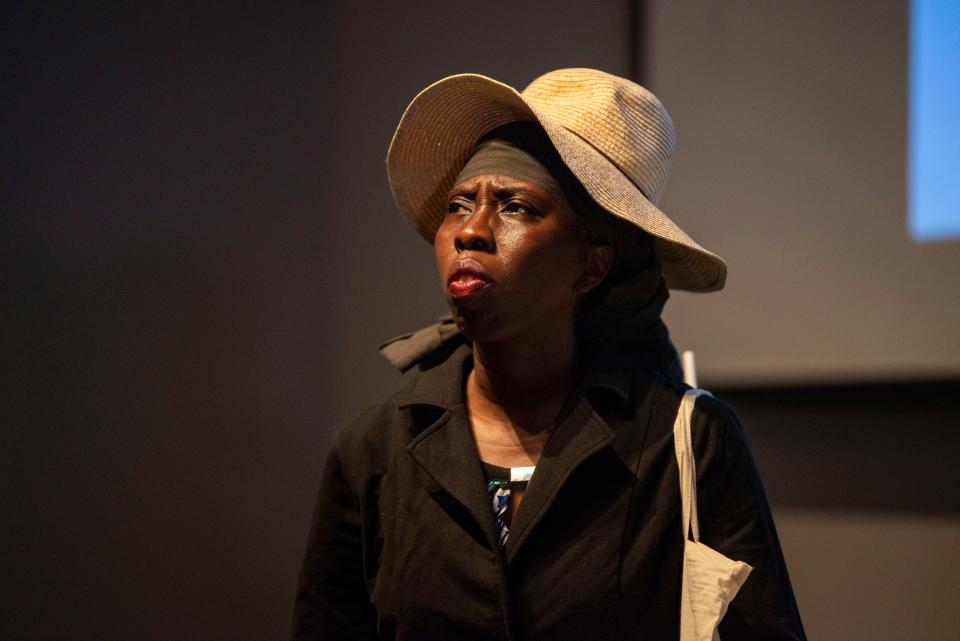
Juneteenth Lecture with Queen Quet
6 p.m., June 15, Jepson Center
The chieftess and head of state for the Gullah-Geechee nation will deliver a Juneteenth lecture titled “Disya WE Land!: Continuing the Land Ownership Legacy of the Gullah/Geechee.” The talk will focus on land ownership among Gullah-Geechee people in the coastal South. Queen Quet Marquetta L. Goodwine is a published author, computer scientist, lecturer, mathematician, historian, columnist, preservationist, environmental justice advocate, environmentalist and film consultant. She is the founder of the premiere advocacy organization for the continuation of Gullah-Geechee culture and the Gullah-Geechee Sea Island Coalition.
For more information, visit Telfair.org/event/juneteenth-lecture-23/.
Cultural Juneteenth Music Festival
Presented by Daughters of Mary Magdalene and City of Savannah
11 a.m. to 7 p.m., June 17, Wells Park
For more info, visit eventbrite.com/e/juneteenth-savannah-tickets-628180162777
·
Juneteenth Fine Arts Festival
1 p.m., June 17, Forsyth Park
The Chosen For The Arts organization is hosting this event, which will include a drum celebration, dancers, speakers, live music and arts, crafts and food vendors.
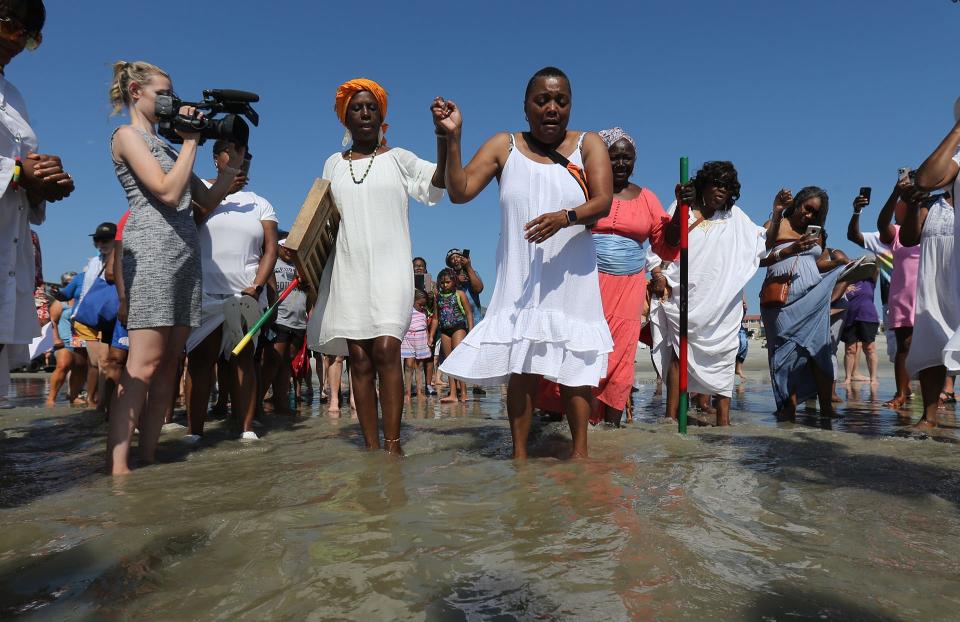
Tybee Island Wade In Juneteenth Celebration
8 a.m., June 19, Tybrisa Street on Tybee Island
The Saltwata Players and the Samba Drummers will highlight the wade in celebration sponsored by the Tybee MLK Human Rights Organization.
Georgia Southern Gullah Geechee Center/Center for Africana Studies Grand Opening and Juneteenth Festival
11 a.m. to 2 p.m., June 19, The Armstrong Center
Georgia Southern celebrates the grand opening of the Gullah Geechee Center with the third annual Juneteenth Festival. The event will feature drumming, music, dancing, storytelling and history telling.
This article originally appeared on Savannah Morning News: Black Music Appreciation Month recognize Savannah best musicians

